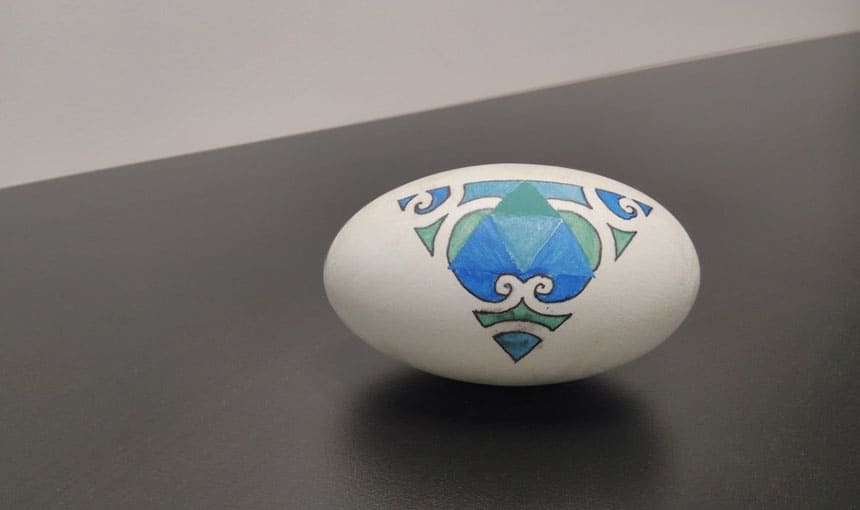The gifting of the decorated black swan eggs ties in with research that’s exploring how kaitiakitanga approaches (Māori guardianship) contribute to reversing the decline of New Zealand’s biodiversity. Also, how it supports the relationship of Māori communities with their environments. Researchers from BioHeritage Challenge partner organisation Manaaki Whenua – Landcare Research are working with Te Rūnanga o Ngāi Tahu on this research.
Each of the new Ara Deputy Chief Executives have, for the first time, clearly articulated responsibilities for advancing Māori student success woven into their roles. The gifting of the eggs at their mihi whakatau (welcome ceremony) was a way of acknowledging this shift towards shared responsibility, says Ngāi Tahu Advisory Committee member and Ara Director of Māori Development, Te Marino Lenihan (Ngāi Tūāhuriri, Ngāti Huirapa, Ngāti Huikai).
“The gesture portrays the diverse cultural value of the black swan egg harvest that goes well beyond food security,” he says.
Created by Ara student Tahu Robinson (Ngāi Tahu, Ngāti Mamoe, Ngāti Apa ki Rā Tō, Te Whānau a Apanui, Ngāti Porou), the design on the swan eggs symbolised the pursuit of the three baskets of knowledge – Te Ara a Tāwhaki.
Te Marino says that the intent was to celebrate and emphasise the shared responsibilities across the whole institution to uphold their Te Tiriti o Waitangi (Treaty of Waitangi) obligations and aspirations, and advance the achievement of Māori learners at Ara.
The customary harvest of black swan eggs is one focus of the project being led by Manaaki Whenua’s Dr Phil Lyver, with researchers evaluating the effect of kaitiakitanga on black swan populations and their habitats.
Ultimately, the multi-disciplinary research team is aiming to develop a framework that provides the basis for informed and inclusive decision-making about environmental conservation. They’re working to provide evidence to support reforms in conservation laws that currently obstruct tangata tiaki (local guardian) roles and aspirations.
The work responds to the 2011 report by the Waitangi Tribunal into the Wai262 claim concerning New Zealand law and policy affecting Māori culture and identity. The report found the current regulatory environment excludes Māori from participating in decisions around issues of vital importance to their culture, such as flora, fauna and the wider environment.
